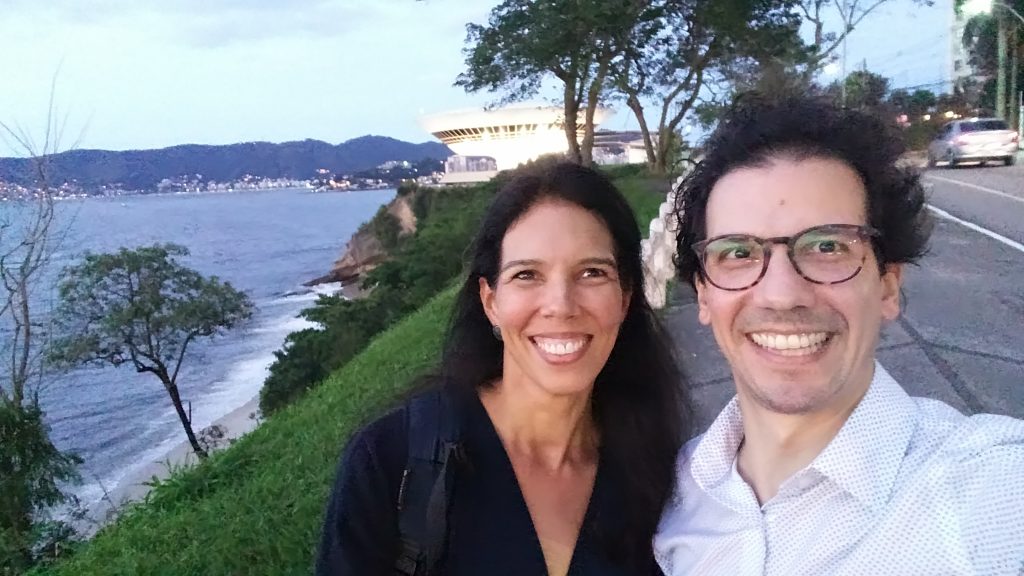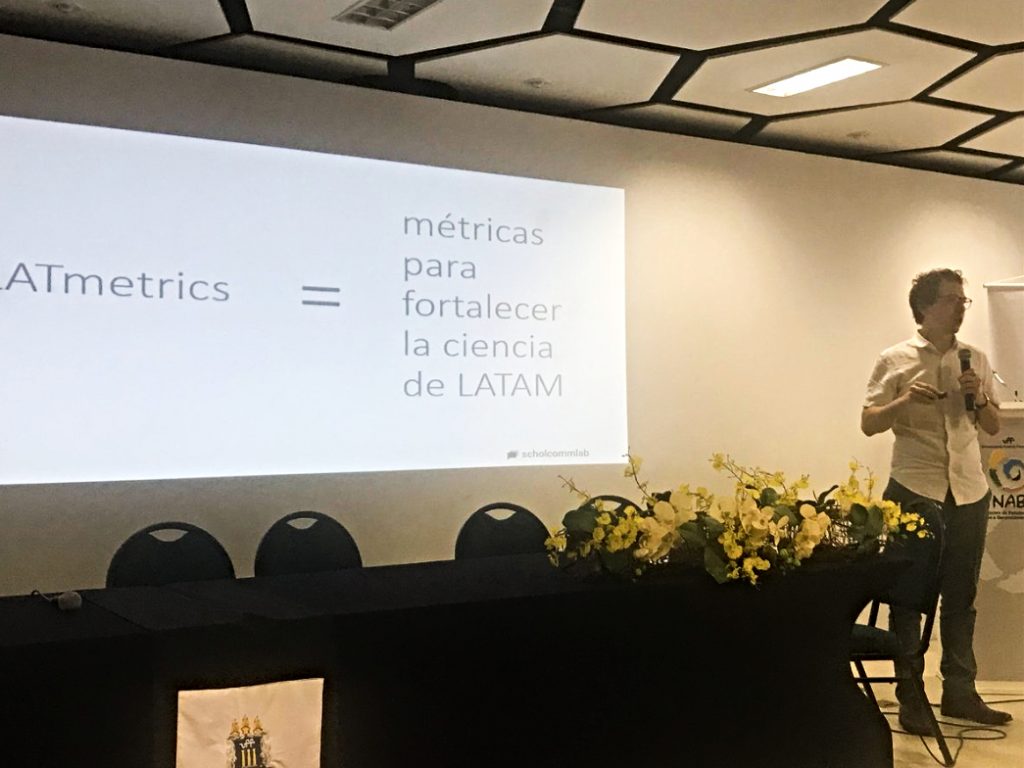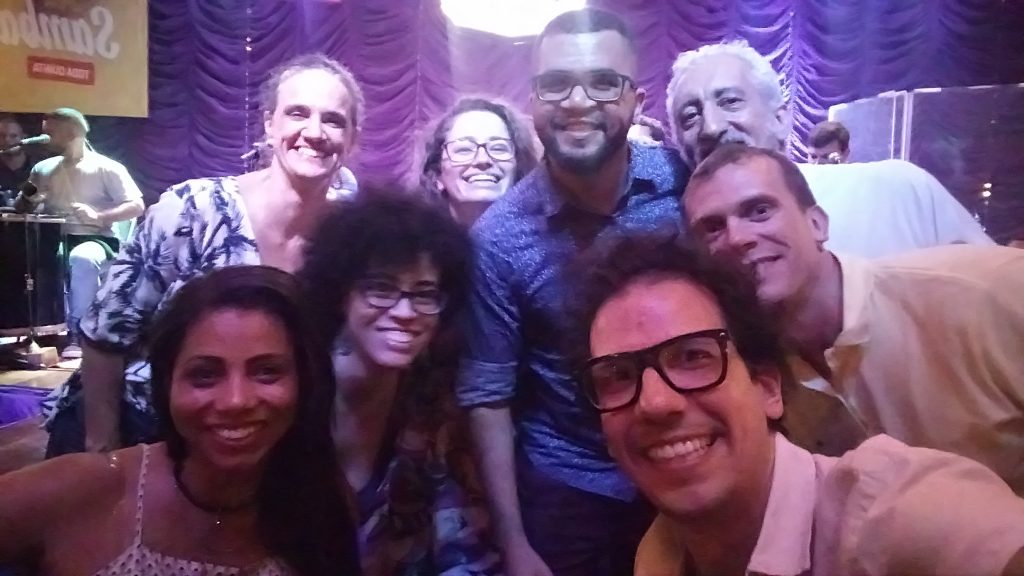Reflections on the Inaugural LATmetrics Conference
This November, the city of Niterói in Rio de Janeiro received the first edition of LATmetrics, an international conference dedicated to the advancement of altmetrics and open science research in Latin America. Bringing together researchers, science communicators, librarians, and other stakeholders, the event featured a diverse array of speakers on everything from social media metrics and open data to the impact of science in society.
ScholCommLab co-director Juan Pablo Alperin was on the scientific committee for the conference, and co-presented the closing keynote. Here’s what he had to say about this landmark event and the future of Latin American metrics research.

LATmetrics’ website says we are experiencing “a moment of effervescence for both scientific communication and the geography of science”. What makes 2018 such an important time for a conference like this to take place?
There’s two parts to it. One is the growing number of researchers from Latin America who are interested in open science and metrics, and in particular, altmetrics. There’s an opportunity to create a new community around these folks—one that is not immediately tied to open science and altmetrics in the so-called “global” context, which is essentially based in North America and Europe.
But it’s also an opportunity to see what is unique about the region when it comes to these issues. LATmetrics was a first attempt to explore whether there are challenges or opportunities related to altmetrics or open science that are specific to Latin America and may not be coming up in other discussions, and whether there are ways of analyzing and thinking about those issues from within the region itself.

You were on a closing ceremony panel about the “Impacts of Open Access in Latin America”. Can you share what you discussed?
There were two of us on the panel, Dr. Sarita Albagli and myself. Both of us, without having coordinated about it at all, gave slightly different perspectives on the same message: the need for Latin American independence when it comes to how we see open science and calculate scholarly metrics. I mostly addressed this from the metrics perspective, with the core message of my talk being that I don’t want Latin American metrics to become global metrics done by people from Latin America. I want them to be metrics that are purposefully trying to strengthen Latin American science. Dr. Albagli gave a similar talk around independence and the intellectual liberation of Latin America science, speaking from an open access and open science perspective.
“I don’t want Latin American metrics to become global metrics done by people from Latin America. I want them to be metrics that are purposefully trying to strengthen Latin American science.”
“I don’t want Latin American metrics to become global metrics done by people from Latin America. I want them to be metrics that are purposefully trying to strengthen Latin American science.”
I think it’s telling that we both chose to close off the conference speaking about regional independence rather than giving a more research-oriented talk. There are a number of relevant projects we’re working on here at the lab that I could have highlighted, but I didn’t want to talk about data or results. I wanted to drive home a message: I really don’t want Latin American metrics to become a community that just replicates Northern metrics.
What sets Latin American metrics apart from other metrics communities?
There are still contentious debates about what metrics should use to assess research. If we adopt the Northern research evaluation culture, I don’t think it’s going to lead to better science. There is an opportunity to develop metrics that make the region more conscious of what it does have. For example, Latin America already has a scholarly owned and operated publishing infrastructure in place, while the rest of North America is still looking for one. Yet Latin America is selling its journals. We should be developing and encouraging the use of metrics that highlight this. I hope we can create a community that appreciates what will make Latin American science thrive, instead of metrics that see us give up the our science sovereignty.What was a highlight of the conference for you?
Rio is such a beautiful place, so we were surrounded by this amazing environment. But there was also this warm, social connection between folks at LATmetrics that I think is lacking at many of the conferences I go to in North America. It was a similar feeling I had with the Latin American group at OpenCon. While I’m friendly and have fun at conferences everywhere, there was a sense of community at this event that really drew people together.
“For me, at all these conferences, it’s never about the talks. It’s about the social connections you make.”
For me, at all these conferences, it’s never about the talks. It’s about the social connections you make. By building communities of people who share similar concerns, these events create friendships and bonds that drive collaboration and idea sharing.

Two other ScholCommLabbers were at the conference as well: former Visiting Scholar Germana Barata gave a talk on the social performance of medical journals, and future Visiting Scholar Iara Vidal de Souza presented work on the advantage of open access and Brazilian publications. Why are international relationships so important for the lab?
My upbringing in scholarly communications started within a Latin American context. But being based here in Canada, it’s so easy for me to tackle projects and problems that are “global” in scope—that is, largely focused on North America or Europe.
So when Germana joined the lab, it was an opportunity to put down one more anchor in Latin America. It’s important for me to maintain that connection, to keep in contact with people who are really on the ground, with the lived experience of being in Latin America that I lack.
Hosting Germana also paved the way for future collaborations with Brazil. Her stay allowed other Brazilian scholars to realize that working in a lab in Canada was an achievable thing. So when we put out our call for the visiting scholar program, we were excited to see we had seven or eight really strong proposals from Brazil. As soon as you forge these kinds of connections, you open up channels for collaborations.
What’s next for LATmetrics?
Next year, the organizers are hoping to repeat the conference again in Peru. I’m already looking forward to the next event. LATmetrics is at the intersection of all of the things that I do: open science, metrics, and Latin American issues. I’m curious to see where this community goes, and I think this conference was a great foundation.
To find out more about LATmetrics, visit latmetrics.com.

[…] também o post publicado por Juan Pablo Alperín (@juancommander), do ScholCommLab, e outro post da Andrea do […]